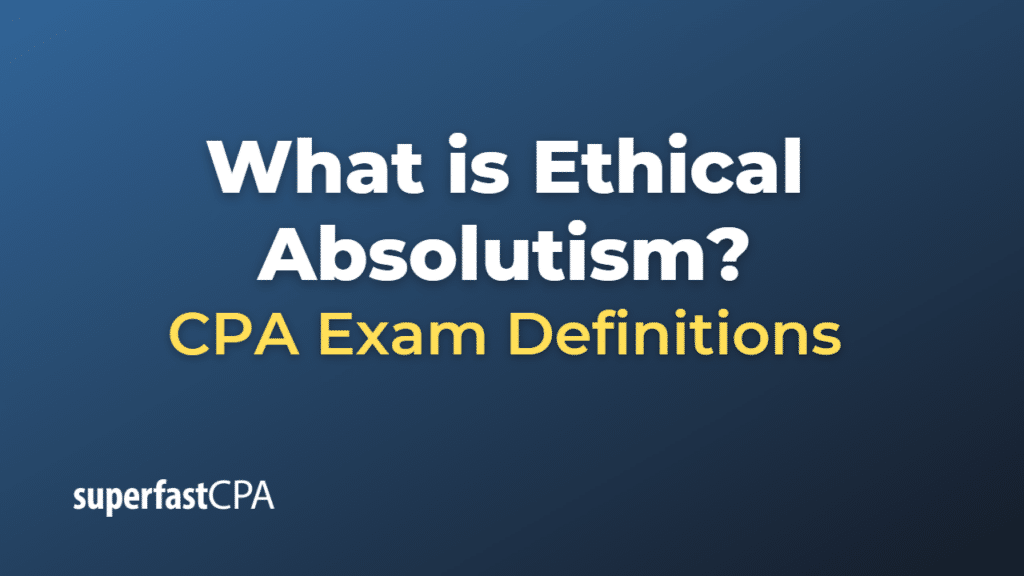Ethical Absolutism
Ethical absolutism, also known as moral absolutism, is a philosophical perspective in ethics which argues that certain actions are intrinsically right or wrong, regardless of the context or consequences. According to this view, certain ethical standards or moral principles are universally applicable and do not depend on culture, personal beliefs, or circumstances.
An ethical absolutist would argue that principles such as honesty, justice, and respect for human life should always be upheld, regardless of the situation. These principles are often grounded in religious or philosophical systems. For instance, the Ten Commandments in the Bible provide absolute rules for behavior that are meant to be followed under all circumstances.
Contrarily, ethical relativism argues that morality is context-dependent and subjective, varying between individuals and cultures. Actions are not intrinsically right or wrong, but are considered so based on cultural, societal, or personal standards.
Critics of ethical absolutism argue that it can lead to intolerance and inflexibility, as it doesn’t take into account cultural differences or the complexity of certain situations. Supporters, however, argue that it provides a clear moral framework that promotes consistency and upholds important values.
As with many philosophical perspectives, both ethical absolutism and ethical relativism have their strengths and weaknesses, and neither is able to perfectly address every ethical dilemma.
Example of Ethical Absolutism
Let’s consider the ethical issue of telling a lie.
Under ethical absolutism, lying would be considered inherently wrong, regardless of the situation. So, if you were hiding a group of innocent people in your home and a person with harmful intent asked you if anyone else was in the house, you would be morally obliged to tell the truth, even though it would likely lead to harm. The absolutist view would argue that lying is always wrong, no matter the circumstance or potential consequences.
In contrast, ethical relativism would allow for flexibility based on the situation. In the example above, a relativist might argue that while generally, lying is wrong, in this specific situation, lying is the morally right choice because it prevents harm to innocent people. This view takes into account the complexity and nuances of real-life situations.
This example illustrates the fundamental difference between ethical absolutism and ethical relativism. Ethical absolutism maintains the same moral rules regardless of the situation, while ethical relativism adjusts moral decisions based on the context.












